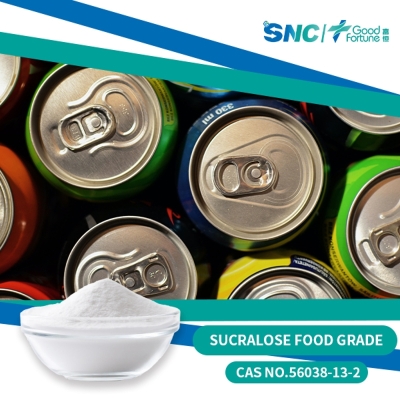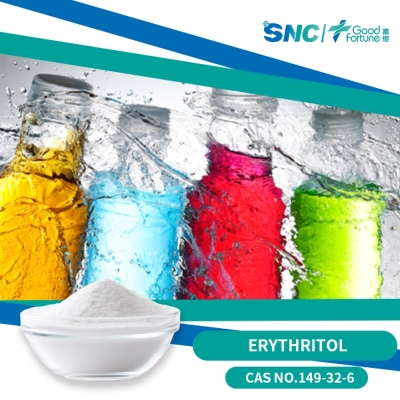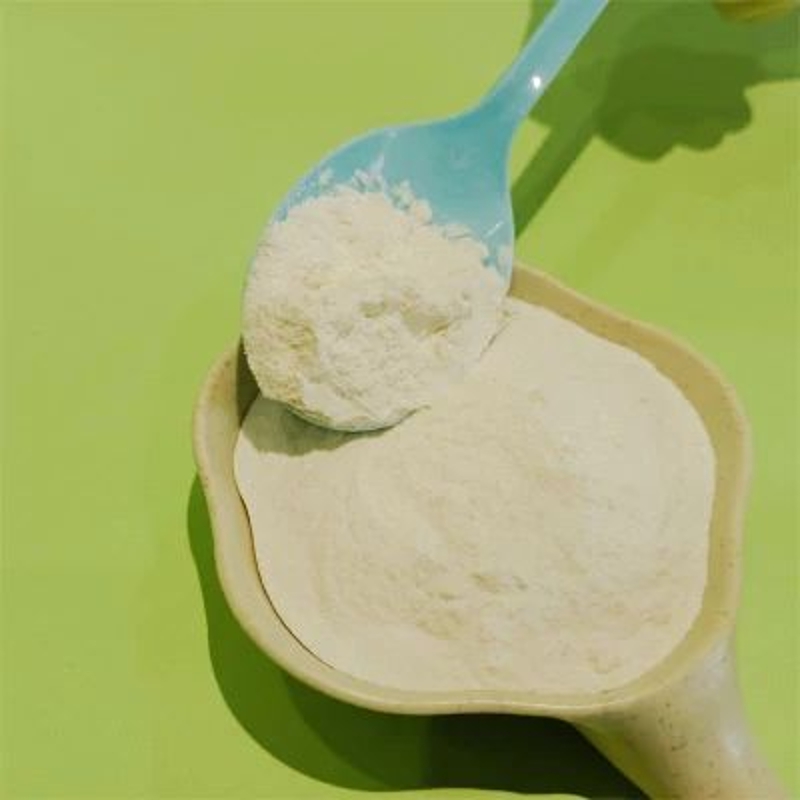-
Categories
-
Pharmaceutical Intermediates
-
Active Pharmaceutical Ingredients
-
Food Additives
- Industrial Coatings
- Agrochemicals
- Dyes and Pigments
- Surfactant
- Flavors and Fragrances
- Chemical Reagents
- Catalyst and Auxiliary
- Natural Products
- Inorganic Chemistry
-
Organic Chemistry
-
Biochemical Engineering
- Analytical Chemistry
-
Cosmetic Ingredient
- Water Treatment Chemical
-
Pharmaceutical Intermediates
Promotion
ECHEMI Mall
Wholesale
Weekly Price
Exhibition
News
-
Trade Service
On October 14, the Chongqing Municipal Administration for Market Regulation reported the recent food sampling inspection, and 20 batches of unqualified food were sampled in 26 batches of samples such as biscuits, catering food, tea and related products, fried food and nut products, egg products, starch and starch products, soy products, convenience foods, bee products, pastries, canned food
, alcohol, processed grain products, meat products, dairy products, sugar, edible agricultural products, etc.
, alcohol, processed grain products, meat products, dairy products, sugar, edible agricultural products, etc.
Heavy metal contamination was detected in chili peppers, ginger and dried yams
Among the unqualified foods, 5 batches were found to have heavy metal contamination problems
.
Among them, cadmium (in Cd) detected in chili peppers did not meet the provisions of national food safety standards, namely: red chaotian pepper (chili pepper) sold by Haorunjia Department Store Supermarket Co.
, Ltd.
in Bishan District, Chongqing; Red millet (chili pepper)
sold at Pudawang Life Supermarket in Nan'an District.
.
Among them, cadmium (in Cd) detected in chili peppers did not meet the provisions of national food safety standards, namely: red chaotian pepper (chili pepper) sold by Haorunjia Department Store Supermarket Co.
, Ltd.
in Bishan District, Chongqing; Red millet (chili pepper)
sold at Pudawang Life Supermarket in Nan'an District.
Cadmium (in terms of Cd) is one of the
most common contaminants of heavy metal elements.
The National Food Safety Standard Limit of Contaminants in Food (GB 2762-2017) stipulates that the limit of cadmium (in terms of Cd) in chili peppers is 0.
05mg/kg
.
Excessive cadmium in peppers may be the enrichment of cadmium in the environment during the planting process
.
most common contaminants of heavy metal elements.
The National Food Safety Standard Limit of Contaminants in Food (GB 2762-2017) stipulates that the limit of cadmium (in terms of Cd) in chili peppers is 0.
05mg/kg
.
Excessive cadmium in peppers may be the enrichment of cadmium in the environment during the planting process
.
In addition, three batches of food were found to be found to be lead (in terms of Pb) that did not meet the provisions of the national food safety standards, namely: dried yam sold in Dazu District chess and chess food store; Ziyanger sold by Chongqing Yipin Hongyu Technology Co.
, Ltd.
Jiangjin District Xijiang Avenue Branch; Ginger
sold at Ah Xu Department Store in Yuzhong District.
, Ltd.
Jiangjin District Xijiang Avenue Branch; Ginger
sold at Ah Xu Department Store in Yuzhong District.
Lead is one of the most common contaminants of
heavy metal elements.
The National Food Safety Standard Limit of Contaminants in Food (GB 2762-2017) stipulates that the maximum limit value of lead in fresh vegetables (brassica vegetables, leafy vegetables, legume vegetables, except ginger and potatoes) is 0.
1mg/kg, and the maximum limit value in fresh potatoes is 0.
2mg/kg, of which the limit of pollutants in dry products is converted
by the limit of pollutants in the corresponding fresh food combined with its dehydration rate or concentration rate.
heavy metal elements.
The National Food Safety Standard Limit of Contaminants in Food (GB 2762-2017) stipulates that the maximum limit value of lead in fresh vegetables (brassica vegetables, leafy vegetables, legume vegetables, except ginger and potatoes) is 0.
1mg/kg, and the maximum limit value in fresh potatoes is 0.
2mg/kg, of which the limit of pollutants in dry products is converted
by the limit of pollutants in the corresponding fresh food combined with its dehydration rate or concentration rate.
Microbial contamination was detected in 4 batches of drinking water and pepper phoenix claws
Among the unqualified foods, 4 batches of food were detected with microbial contamination
.
Among them, the total number of colonies detected in 2 batches of food did not meet the provisions of the national food safety standards, namely: soybean soy sauce sold by Chongqing Bishan District Haorunjia Department Store Supermarket Co.
, Ltd.
and claimed to be produced by Sichuan Hongzhou Condiment Co.
, Ltd.
; Pepper phoenix claw (irradiation processing)
sold by Mawangping Store of Chongqing Trading Company New Century Department Store Chain Management Co.
, Ltd.
and produced by Qingdouqi Food Co.
, Ltd.
Kowloon Wonders Branch.
.
Among them, the total number of colonies detected in 2 batches of food did not meet the provisions of the national food safety standards, namely: soybean soy sauce sold by Chongqing Bishan District Haorunjia Department Store Supermarket Co.
, Ltd.
and claimed to be produced by Sichuan Hongzhou Condiment Co.
, Ltd.
; Pepper phoenix claw (irradiation processing)
sold by Mawangping Store of Chongqing Trading Company New Century Department Store Chain Management Co.
, Ltd.
and produced by Qingdouqi Food Co.
, Ltd.
Kowloon Wonders Branch.
The total number of colonies is an indicator of microorganisms to reflect the hygiene status
of food.
GB 2717-2018 National Food Safety Standard Soy Sauce stipulates that the total number of colonies in soy sauce should meet the requirements of n=5, c=2, m=5000, M=50000CFU/g; According to the "GB 2726-2016 National Food Safety Standard Cooked Meat Products", the total number of colonies in cooked meat products (except fermented meat products) should meet the requirements of
n=5, c=2, m=104, M=105 CFU/g.
The reason why the total number of colonies exceeds the standard may be that the initial number of colonies of raw materials used by the manufacturer is high; It may also be that the hygienic conditions in the production and processing process are not strictly controlled; It may also be related to
the poor sealing of product packaging and improper control of storage and transportation conditions.
of food.
GB 2717-2018 National Food Safety Standard Soy Sauce stipulates that the total number of colonies in soy sauce should meet the requirements of n=5, c=2, m=5000, M=50000CFU/g; According to the "GB 2726-2016 National Food Safety Standard Cooked Meat Products", the total number of colonies in cooked meat products (except fermented meat products) should meet the requirements of
n=5, c=2, m=104, M=105 CFU/g.
The reason why the total number of colonies exceeds the standard may be that the initial number of colonies of raw materials used by the manufacturer is high; It may also be that the hygienic conditions in the production and processing process are not strictly controlled; It may also be related to
the poor sealing of product packaging and improper control of storage and transportation conditions.
In addition, the Jinyu Mountain Spring drinking pure water sold by the Fulin Bottled Water Business Department of Tongliang District, Chongqing City, and produced by the nominal Xiyun Pure Water Beverage Factory in Tongliang District, was found to be Pseudomonas aeruginosa not meeting the national
food safety standards.
food safety standards.
Pseudomonas aeruginosa is a conditionally pathogenic bacterium, widely distributed in water, air, normal human skin, respiratory tract and intestines, etc.
, easy to survive in a humid environment, has strong resistance to disinfectants, ultraviolet rays, etc.
, and has health risks
for people with weak resistance.
The National Food Safety Standard for Packaged Drinking Water (GB 19298-2014) stipulates that the standard values of Pseudomonas aeruginosa are n=5, c=0, m=0, and CFU/250mL
.
The reason for excessive Pseudomonas aeruginosa in bottled drinking water may be improper protection of water source water and contamination of water bodies; Some enterprises are not in place to supervise environmental hygiene, the operation is not standardized enough, and the production process is cross-polluted; In the circulation link, the storage time is long, and the bucket is recycled many times to increase the risk of
secondary pollution.
, easy to survive in a humid environment, has strong resistance to disinfectants, ultraviolet rays, etc.
, and has health risks
for people with weak resistance.
The National Food Safety Standard for Packaged Drinking Water (GB 19298-2014) stipulates that the standard values of Pseudomonas aeruginosa are n=5, c=0, m=0, and CFU/250mL
.
The reason for excessive Pseudomonas aeruginosa in bottled drinking water may be improper protection of water source water and contamination of water bodies; Some enterprises are not in place to supervise environmental hygiene, the operation is not standardized enough, and the production process is cross-polluted; In the circulation link, the storage time is long, and the bucket is recycled many times to increase the risk of
secondary pollution.
In addition, the bowl (reused dining utensils) used in the Jersey restaurant in Banan District was found to be coliform bacteria that did not meet the national
food safety standards.
food safety standards.
2 batches of bananas were detected with iracloprid exceeding the standard
Among the unqualified foods, 2 batches of bananas were detected as imidacloprid that did not meet the provisions of the national food safety standards, namely: bananas sold in the supermarket of Zhongguo Department Store in the High-tech Industrial Development Zone; Fengdu County fell in love with the bananas
sold in the supermarket.
sold in the supermarket.
Imidacloprid is a systemic insecticide that can be transmitted between layers, has contact killing and gastric toxicity, is easily absorbed by plants, and is redistributed in plants, with good root systemic activity
.
According to the National Food Safety Standard Maximum Residue Limit of Pesticides in Food (GB 2763-2021), the maximum residue limit of imidacloprid in bananas is 0.
05mg/kg
.
.
According to the National Food Safety Standard Maximum Residue Limit of Pesticides in Food (GB 2763-2021), the maximum residue limit of imidacloprid in bananas is 0.
05mg/kg
.
Wume, sesame oil, etc.
detected problems with the use of food additives
detected problems with the use of food additives
Among the unqualified foods, 3 batches were detected with the use of
food additives.
Among them, the plum (cold fruit) sold by Chen Wei, No.
3-118, Building 6, Yangjiaping Qianjin Branch Road, Jiulongpo District, Chongqing City, and claimed to be produced by Yongtai County Shunda Food Co.
, Ltd.
, Fujian Province, detected bright blue that did not meet the provisions of the
national food safety standards.
food additives.
Among them, the plum (cold fruit) sold by Chen Wei, No.
3-118, Building 6, Yangjiaping Qianjin Branch Road, Jiulongpo District, Chongqing City, and claimed to be produced by Yongtai County Shunda Food Co.
, Ltd.
, Fujian Province, detected bright blue that did not meet the provisions of the
national food safety standards.
Brilliant blue, also known as edible blue No.
1 (Japan), edible blue No.
2, is a water-soluble non-azo colorant
.
"GB 2760-2014 Food Additive Use Standard" stipulates that the maximum use of brilliant blue in cold fruit products is 0.
025g/kg
.
1 (Japan), edible blue No.
2, is a water-soluble non-azo colorant
.
"GB 2760-2014 Food Additive Use Standard" stipulates that the maximum use of brilliant blue in cold fruit products is 0.
025g/kg
.
In addition, the Shicheng Jiabao Rui cold sesame oil sold by Ah Xu Department Store in Yuzhong District and claimed to be produced by Jiangyou Junru Food Factory entrusted by Sichuan Jiabao Rui Food Co.
, Ltd.
was found to not meet the provisions of
the national food safety standards.
, Ltd.
was found to not meet the provisions of
the national food safety standards.
Ethyl maltol is a flavor synergist that has a significant effect on the improvement and enhancement of the flavor of food and can prolong the storage period
of food.
The National Food Safety Standard Food Additive Use Standard (GB 2760-2014) stipulates that vegetable oils and fats shall not be added to food spices and flavors
.
of food.
The National Food Safety Standard Food Additive Use Standard (GB 2760-2014) stipulates that vegetable oils and fats shall not be added to food spices and flavors
.
In addition, sucralose (seasoned noodle products) sold by Aimejia Life Supermarket in Yubei District and claimed to be produced by Sichuan Xiaoyuer Food Co.
, Ltd.
commissioned by Wusheng Spicy Good Food Co.
, Ltd.
was found to not meet the national
food safety standards.
, Ltd.
commissioned by Wusheng Spicy Good Food Co.
, Ltd.
was found to not meet the national
food safety standards.
Sucralose, also known as sucralose, sucrose, is a commonly used sweetener
in food production.
The National Food Safety Standard Food Additive Use Standard (GB 2760-2014) stipulates that the maximum use of sucralose in seasoned noodle products is 0.
6g/kg
.
in food production.
The National Food Safety Standard Food Additive Use Standard (GB 2760-2014) stipulates that the maximum use of sucralose in seasoned noodle products is 0.
6g/kg
.
In addition to the above products, there are 6 batches of unqualified food: first-class pressed rapeseed oil produced by Chongqing Honghao Oil Co.
, Ltd.
, natural flavored melon seeds (loose) sold by Nan'an District Whole Fresh Food Supermarket, and fried sunflower seeds produced by Inner Mongolia Kaixin Food Co.
, Ltd.
sold by Pengshui County Songjiao Supermarket were all detected that the peroxide value did not meet the provisions of the national standard; The white vinegar flavored liquid compound seasoning sold by Qin Xianbin, No.
111, Heming West Street, Sanmiao Town, Hechuan District, Chongqing, and claimed to be produced by Mianyang Shuweixiang Food Co.
, Ltd.
, found that the total acid (in terms of lactic acid) did not meet the requirements of the product implementation standard; The edible plant blended oil produced by Qinghui Lemei Food Co.
, Ltd.
commissioned by Qinghui Lemei Food Co.
, Ltd.
in Shapingba District was found to not meet the provisions of the national food safety standards; The reusable dining utensils used in the restaurant in Nanchuan District were found to be non-compliant with the national
food safety standards.
, Ltd.
, natural flavored melon seeds (loose) sold by Nan'an District Whole Fresh Food Supermarket, and fried sunflower seeds produced by Inner Mongolia Kaixin Food Co.
, Ltd.
sold by Pengshui County Songjiao Supermarket were all detected that the peroxide value did not meet the provisions of the national standard; The white vinegar flavored liquid compound seasoning sold by Qin Xianbin, No.
111, Heming West Street, Sanmiao Town, Hechuan District, Chongqing, and claimed to be produced by Mianyang Shuweixiang Food Co.
, Ltd.
, found that the total acid (in terms of lactic acid) did not meet the requirements of the product implementation standard; The edible plant blended oil produced by Qinghui Lemei Food Co.
, Ltd.
commissioned by Qinghui Lemei Food Co.
, Ltd.
in Shapingba District was found to not meet the provisions of the national food safety standards; The reusable dining utensils used in the restaurant in Nanchuan District were found to be non-compliant with the national
food safety standards.
In accordance with the requirements of the Food Safety Law of the People's Republic of China, the local market regulatory department has initiated the investigation and handling of the unqualified products found in the above-mentioned random inspections in accordance with the law, and at the same time has taken risk control measures to clarify the flow of products, recall and remove unqualified products, analyze the reasons and carry out rectification
.
.
Chongqing Municipal Administration for Market Regulation Notice on the 1964 batch of food safety sampling inspection unqualified sample information
(Source: Chongqing Administration for Market Regulation).
Supervise the sampling inspection of unqualified product information
Related report: Notice of Chongqing Municipal Administration for Market Regulation on the sampling of food safety in 1964 batch
This article is edited by the Food Information Center of Food Partner Network, unauthorized reprinting is prohibited, if you need to reprint, please contact the news@foodmate.
net
after obtaining authorization.







